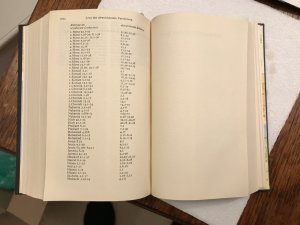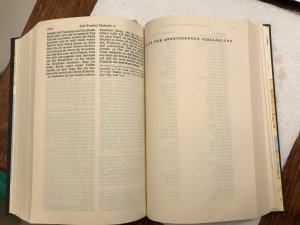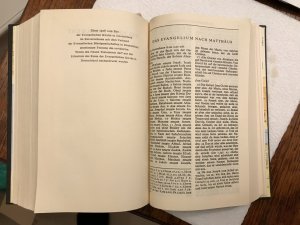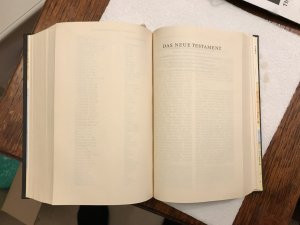-
Starting today August 7th, 2024, in order to post in the Married Couples, Courting Couples, or Singles forums, you will not be allowed to post if you have your Marital status designated as private. Announcements will be made in the respective forums as well but please note that if yours is currently listed as Private, you will need to submit a ticket in the Support Area to have yours changed.
You are using an out of date browser. It may not display this or other websites correctly.
You should upgrade or use an alternative browser.
You should upgrade or use an alternative browser.
Protestant Christian dilemma
- Thread starter J3thekingofking
- Start date
Albion
Facilitator
- Dec 8, 2004
- 111,127
- 33,263
- Country
- United States
- Gender
- Male
- Faith
- Anglican
- Marital Status
- Married
Okay. I'm open to being corrected, but let me understand this correctly. Are you saying that Lutherans continued to accept the Apocrypha as PART OF THE BIBLE...or only retained the use of them, both in church services and individually, because the information in them was considered to be of some value?Not correct regarding Lutherans Albion. As long as our Churches used German, our German Bibles retained the Apocrypha. It was only when we transitioned to English that we lost them for no good reason other than the only English Bibles available were the ubiquitous KJV, which was not available with the Apocrypha.
I am aware of that. But that is the reason I asked for the clarification above. What you wrote here ("inspired or not") leaves it unclarified. So are they -- and were they during the Reformation -- seen as inspired or not?I As I have mentioned here at CF many times in the past, that while absent in the Bibles in use, it's use remained in our Liturgy, as it does to this day; inspired or not, historically and theologically, such is the case.
Upvote
0
- Dec 8, 2007
- 31,003
- 5,830
- Country
- Canada
- Gender
- Male
- Faith
- Lutheran
- Marital Status
- Married
No simple answer if you want black and white. Inspired? Obviously not inspired enough to use them to establish Doctrine, but Inspired enough that they Church finds value in them and uses them to support give context and understanding when studying the universally accepted books of the Bible. They are used the same way as the new testament books that are considered the Antilegomena, and interpreted the same way, using the Homologoumena. Bottom line; we certainly did not discard them the way that the reformed protestants have.Okay. I'm open to being corrected, but let me understand this correctly. Are you saying that Lutherans continued to accept the Apocrypha as PART OF THE BIBLE...or only retained the use of them, both in church services and individually, because the information in them was considered to be of some value?
I am aware of that. But that is the reason I asked for the clarification above. What you wrote here ("inspired or not") leaves it unclarified. So are they -- and were they during the Reformation -- seen as inspired or not?
Upvote
0
jamiec
Well-Known Member
- Aug 2, 2020
- 559
- 260
- Country
- United Kingdom
- Gender
- Male
- Faith
- Catholic
- Marital Status
- Private
It may be true of many or even most Protestants in the United States; but I can think of countries where it certainly isn't true.Speaking as a protestant, this hasn't been my experience. More protestants have read Paul in depth, particularly Romans, Ephesians, and Galatians and know how to proof text.
Upvote
0
Albion
Facilitator
- Dec 8, 2004
- 111,127
- 33,263
- Country
- United States
- Gender
- Male
- Faith
- Anglican
- Marital Status
- Married
Bottom line; we certainly did not discard them the way that the reformed protestants have.
?? Okay, but that's the status of these writings according to what I wrote earlier, and you wrote back to say "not correct according to Lutherans, Albion."
Upvote
0
- Dec 8, 2007
- 31,003
- 5,830
- Country
- Canada
- Gender
- Male
- Faith
- Lutheran
- Marital Status
- Married
?? Okay, but that's the status of these writings according to what I wrote earlier, and you wrote back to say "not correct according to Lutherans, Albion."
I'm going by the normal, historical way of dating the Reformation as opposed to including the various forerunners of the Reformation.
Removed from the list of Bible books.
Calvin aside, they were dropped by the Lutheran, Anglican, Anabaptist, and other reformed movements.
What you wrote (see highlighted in red) is untrue; they were not "removed" nor were they "dropped" by Lutherans; rather they were "retained".
They were also not dropped by any of the Anabaptists (Amish and Old Order Mennonites) that I know; as they still use the Luther Bible in their Churches, Schools and homes.
How they study from Luther's Bible (High German) but speak in low or "flat" german is a bit of a mystery for me.
Upvote
0
Albion
Facilitator
- Dec 8, 2004
- 111,127
- 33,263
- Country
- United States
- Gender
- Male
- Faith
- Anglican
- Marital Status
- Married
So you are of the opinion that the Apocrypha is considered by Lutherans to be part of the Old Testament, just as Catholics do. Wow.What you wrote (see highlighted in red) is untrue; they were not "removed" nor were they "dropped" by Lutherans; rather they were "retained".

Upvote
0
jamiec
Well-Known Member
- Aug 2, 2020
- 559
- 260
- Country
- United Kingdom
- Gender
- Male
- Faith
- Catholic
- Marital Status
- Private
That sounds perhaps quasi-Anglican (given the liturgical use of Ecclesiasticus 44 in the C of E on Remembrance Sunday), but not very Lutheran. Unless, perhaps, one regards the choice of the books in the Canon as an exercise of what I think Luther referred to as "freedom of a Christian man".So you are of the opinion that the Apocrypha is considered by Lutherans to be part of the Old Testament, just as Catholics do. Wow.
Seems to me that there is a passable case to be made for having no use in the church of the OT whatsoever. Or, come to think of it, of the NT. after all, Jesus filled the promises of the old Law, and if the old Law and its ceremonies are all "done away in Christ", what validity can the Law possibly have for Christians, who are led by the Holy Spirit, and not by the dead and deadening letter of the Law ?
Oh, BTW: the CC regards most of the "books called Apocrypha" as canonical - but does not include 1 Esdras, 2 Esdras, or the Prayer of Manasseh as canonical. Some of the 27 NT books are deutero-canonical too. But this point tends to get overlooked, possibly because the canon of the new Testament is not a point of difference between Protestants and Catholics.
1 Esdras is basically an expansion of the end of 2 Chronicles.
2 Esdras is made up of
4 Ezra (2 Esdras 1-2)
5 Ezra (2 Esdras 15-16)
6 Ezra (2 Esdras 3-14).
2 Esdras 3-14 is an apocalypse, from perhaps 100 AD & later. To increase the fun, as of 1875, it was printed with a formerly lost fragment, from between 2 Esdras 7.35 & 36, restored. Previously, it was 70 verses long (as in the AV); now it is 140 verses long. (The Revised Version Apocrypha of 1895 includes the restored fragment). The fragment is a rejection of the value of prayer for the departed, which may explain the removal of that passage.
In some early printed editions of the OT, the Prayer of Manasseh comes after the end of what we know as 2 Chronicles 36. So it is included in the canonical text of the OT, but not where the mention of Manasseh's repentance in 2 Chronicles might suggest it should occur. This suggests that the Prayer was considered to be less than fully canonical, but too precious to be expunged entirely. It is a very fine composition.
In some German early printed Bibles, the Gospel of Nicodemus is included in an appendix. I think this illuminates Luther's decision to present 4 NT books in an appendix of their own - as less than fully canonical, perhaps, but not to be despised, even if (in his judgement) they did not really belong with the other NT books. He was making a judgement based not only on his theological prioritisation of some books over others - in which he was surely correct: some NT books do take precedence over others - but also on the Renaissance awareness that some books had a far better right to be regarded as authentic, than did others.
If one is prepared to extend criticism of books to the Bible, as Luther had shown that he was, then he was as justified as any other Renaissance critic of texts in regarding some NT books as less authentic than others. The logic that allowed him to reject the "books called Apocrypha", allowed him to speak very caustically of the Book of Esther, and to put those 4 NT books in an appendix at the end of his New Testament. This makes the Higher Criticism of the Bible nothing more - in principle - than a more thoroughgoing exercise of the freedom which Luther, as a Christian and a critic, claimed for himself.
Last edited:
Upvote
0
jamiec
Well-Known Member
- Aug 2, 2020
- 559
- 260
- Country
- United Kingdom
- Gender
- Male
- Faith
- Catholic
- Marital Status
- Private
My guess is, thatNot correct regarding Lutherans Albion. As long as our Churches used German, our German Bibles retained the Apocrypha. It was only when we transitioned to English that we lost them for no good reason other than the only English Bibles available were the ubiquitous KJV, which was not available with the Apocrypha. As I have mentioned here at CF many times in the past, that while absent in the Bibles in use, it's use remained in our Liturgy, as it does to this day; inspired or not, historically and theologically, such is the case. The Bible I am currently using is "The Augustine Bible ESV Catholic Edition, not because it is Catholic, but because it is "whole".
BTW, many theologians put a number of other books in the same category; Revelation is at the top of that list.
1. the Apoc remain in German Bibles, printed between the Testaments, as respected quasi-canonical texts which are useful for edification, but not for establishing doctrine;
2. that the same Apoc are read, at least on occasion, in the Liturgy.
IOW, I am guessing that the Lutheran treatment of the Apoc is identical with the C of E's treatment of them. Is that an accurate set of guesses ?
FWIW, I have a 1972 revision of Luther's Bible, which does not include any of the Apocrypha. Is this unusual ? It is copyrighted by the Wurttemberg Bible Society, Stuttgart.
I would guess that they are saying that certain books of the Bible take priority over others - rather than that any in the canon, belong outside it.BTW, many theologians put a number of other books in the same category; Revelation is at the top of that list.
Proverbs is clearly not as theologically central as Isaiah or Jeremiah; and 2 John is obviously far below St Matthew in theological value.
But all these, regardless of their deficiencies, are equally truly canonical; even if they may differ in fullness of inspiration.
As for Revelation, it is an excellent conclusion both to the NT, & to the Bible.




Last edited:
Upvote
0
jamiec
Well-Known Member
- Aug 2, 2020
- 559
- 260
- Country
- United Kingdom
- Gender
- Male
- Faith
- Catholic
- Marital Status
- Private
The English Protestants were part of international Protestantism - had they not been, the English Reformation under Edward VI would not have had Protestants like Jan Laski advising Cranmer on the formation of the 1549 Book of Common Prayer. Conversely, the Geneva Bible of 1560 was the work of Protestant English exiles. English Protestants took part in the Synod of Dordt. English history after 1520 cannot be separated from that of the Reformation on the Continent.Actually, apocrypha was deemed by the Reformers to be inspired. You can read Calvin's works, works of for example Bohemian reformers. I am not sure about Luther, I have read only two books from him, so maybe.
I am talking about European (France, Switzerland, Holy Roman Empire, Poland...) reformation. England was always a foreign country to Europe, just some border wars with France. So Anglican statements had no influence. Helvetic confessions, Augsburg confession or Heidelberg catechism were more in use.
On the other hand I understand that you being Anglican and living in post-English colony have a different point of view on the world history, but its not too much European.
Upvote
0
Albion
Facilitator
- Dec 8, 2004
- 111,127
- 33,263
- Country
- United States
- Gender
- Male
- Faith
- Anglican
- Marital Status
- Married
Anglicans don't consider the Apocrypha to be part of the Bible. I think that's also the Lutheran view, although Mark seems to be saying the opposite.That sounds perhaps quasi-Anglican (given the liturgical use of Ecclesiasticus 44 in the C of E on Remembrance Sunday), but not very Lutheran.
Upvote
0
Fervent
Well-Known Member
- Sep 22, 2020
- 6,724
- 2,919
- 45
- Country
- United States
- Gender
- Male
- Faith
- Christian
- Marital Status
- Married
Not at all, to function as the authority we must know the bounds of Scripture. Since there is no inspired index, as far as I know, how do we make that determination except to look outside of Scripture to define it? and if it is so defined, how is the one making the definition of the not a higher authority or at least not the one to give authoritative understandings?How would that not be re-inventing the wheel ?
Upvote
0
jamiec
Well-Known Member
- Aug 2, 2020
- 559
- 260
- Country
- United Kingdom
- Gender
- Male
- Faith
- Catholic
- Marital Status
- Private
I know they don't - but in the C of E, Ecclesiasticus 44, though in the Apocrypha, is used in the Liturgy.Anglicans don't consider the Apocrypha to be part of the Bible. I think that's also the Lutheran view, although Mark seems to be saying the opposite.
Upvote
0
- Dec 8, 2007
- 31,003
- 5,830
- Country
- Canada
- Gender
- Male
- Faith
- Lutheran
- Marital Status
- Married
Albion, all I am saying is... We did not drop them, we did not throw them out; both of which you accused the Lutheran Reformers of doing.So you are of the opinion that the Apocrypha is considered by Lutherans to be part of the Old Testament, just as Catholics do. Wow.
That was my original point, stop deflecting.
Upvote
0
- Dec 8, 2007
- 31,003
- 5,830
- Country
- Canada
- Gender
- Male
- Faith
- Lutheran
- Marital Status
- Married
My guess is, that
1. the Apoc remain in German Bibles, printed between the Testaments, as respected quasi-canonical texts which are useful for edification, but not for establishing doctrine;
Correct
2. that the same Apoc are read, at least on occasion, in the Liturgy.
Correct
IOW, I am guessing that the Lutheran treatment of the Apoc is identical with the C of E's treatment of them. Is that an accurate set of guesses ?
Correct; not surprising considering Cranmar studied at the University of Tubingen, and Married the Lutheran Daughter of one of the Professors. Also the English translation of the Divine Service in the 1941 hymnal borrows heavily from Cranmer's Book of Common Prayer, because it was such a faithful translation of the German and Latin Lutheran Texts.
FWIW, I have a 1972 revision of Luther's Bible, which does not include any of the Apocrypha. Is this unusual ? It is copyrighted by the Wurttemberg Bible Society, Stuttgart.
Keep in mind that the State/Provincial Churches in Germany are way more protestant and reformed than the Confessional Churches (Prussian Union) so it is no surprise that they are publishing without them. Only the independent SELK remains a Confessional Church, and is a very small minority in Germany.
Be mindful that the Catholic Church closed the canon at Trent; prior to that they generally viewed the Bible the same way we do.
The ESV Lutheran Study Bible from Concordia was to include the Apocrypha originally, but due to the extensive notes and reference material, the book got very big, and so Concordia published a stand-alone edition as a companion to the Study Bible. The Apocrypha: The Lutheran Edition with Notes ; There are extensive notes in addressing this historic usage of these books in the Church catholic.
Upvote
0
Albion
Facilitator
- Dec 8, 2004
- 111,127
- 33,263
- Country
- United States
- Gender
- Male
- Faith
- Anglican
- Marital Status
- Married
--and that's not all, but this is what makes explaining the Anglican (and Lutheran) approach to the Apocrypha so difficult to get across to some people.I know they don't - but in the C of E, Ecclesiasticus 44, though in the Apocrypha, is used in the Liturgy.
These readings are NOT considered to be inspired; they're not part of the Bible. No doctrine can be based upon them. However, they are -- as the Thirty-nine Articles clearly state -- worthwhile for instruction in examples of life and manners. To me, this is easily understood, but I encounter people often, it seems, who think that if there is any reference to something from the Apocrypha, even a once-a-year reading of some passage, then it must mean that it's being considered to be the word of God.
Upvote
0
- Aug 11, 2017
- 25,856
- 8,382
- Country
- United States
- Gender
- Male
- Faith
- Non-Denom
- Marital Status
- Married
Protestant Christian affirmed the reformation, but what's their methodology of discernment on that subject? Many protestant Christian can't even tell the differences btw the denominations. I don't think they study the reformation correctly. By correctly I mean they should have read how the reformation is going back the early teaching of the church. If someone claim he's a protestant, he/she must be well educated of church history and have read the church fathers.
I've seen too many protestant Christian defend the teaching of their church, yet ignorance about the writing of the early church and ignore the teaching of other protestant denomination leaders. If that's the attidude of working out our discernment, we can easily fall into a cult or believing a new religion.
Many people are just content in their beliefs and aren’t willing to make the effort to do any study on church history. It stands to reason that of you want to know what the early church taught you can get some incite from the early church writers, the very students and followers of the authors of the New Testament. These men received a lot more information from the apostles than we do from the scriptures because they followed them and were taught by them for years and even decades. I have to say it was tough for me to accept that reformed theology was not what the apostles taught but the evidence is overwhelmingly against reformed theology. Accepting that fact sure helped me get a far more comprehensive understanding of the scriptures because I didn’t have to question verses like John 15:1-7 or Galatians 5:4 because these verses no longer contradicted my theology. I completely understand the goal and the motivation for the reformation movement, I definitely think it was a warranted movement given the circumstances, unfortunately they just didn’t arrive at a solid theology.
Upvote
0
- Aug 11, 2017
- 25,856
- 8,382
- Country
- United States
- Gender
- Male
- Faith
- Non-Denom
- Marital Status
- Married
If they did they most likely would stay Protestant, the reformation was triggered heavily by the practices such as indulgences essentially, by purchasing an indulgence, an individual could reduce the length and severity of punishment that heaven would require as payment for their sins, or so the church claimed. Buy an indulgence for a loved one, and they would go to heaven and not burn in hell. Which the reformers disagreed with which set off the Thesis. Practices and The authority Rome had caused the reformation.
What a lot of people don’t know is that Rome was excommunicated from the Church 500 years before that took place. Rome was only one of the many apostolic churches and at that time they were completely operating on their own without the approval of the rest of the apostolic churches.
Upvote
0
- Aug 11, 2017
- 25,856
- 8,382
- Country
- United States
- Gender
- Male
- Faith
- Non-Denom
- Marital Status
- Married
This statement just is very ignorant in itself, you dont need to be well verse on church history and still affirm the reformer theology. Not every Christian need to focus on Church history.
Knowledge of Church history can be helpful especially in understanding Rome’s position at the time the reformation took place. Like I said they were excommunicated 500 years before the reformation and were acting in opposition to the rest of the apostolic churches.
Upvote
0
Similar threads
- Replies
- 0
- Views
- 83
- Replies
- 1
- Views
- 257
- Replies
- 15
- Views
- 624
- Replies
- 0
- Views
- 146

